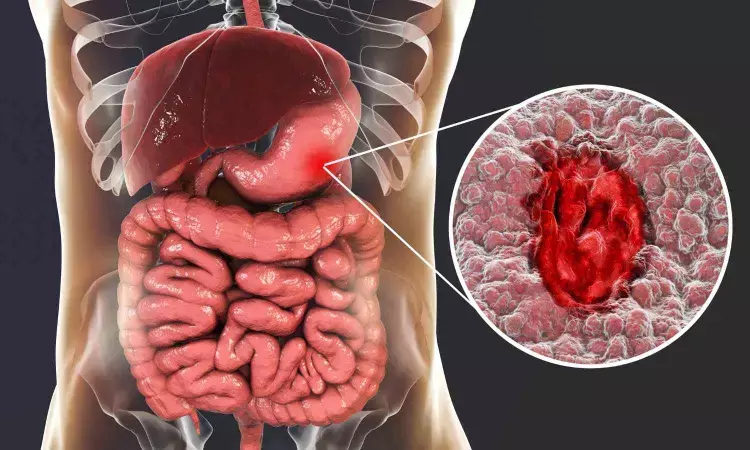- Home
- Medical news & Guidelines
- Anesthesiology
- Cardiology and CTVS
- Critical Care
- Dentistry
- Dermatology
- Diabetes and Endocrinology
- ENT
- Gastroenterology
- Medicine
- Nephrology
- Neurology
- Obstretics-Gynaecology
- Oncology
- Ophthalmology
- Orthopaedics
- Pediatrics-Neonatology
- Psychiatry
- Pulmonology
- Radiology
- Surgery
- Urology
- Laboratory Medicine
- Diet
- Nursing
- Paramedical
- Physiotherapy
- Health news
- Fact Check
- Bone Health Fact Check
- Brain Health Fact Check
- Cancer Related Fact Check
- Child Care Fact Check
- Dental and oral health fact check
- Diabetes and metabolic health fact check
- Diet and Nutrition Fact Check
- Eye and ENT Care Fact Check
- Fitness fact check
- Gut health fact check
- Heart health fact check
- Kidney health fact check
- Medical education fact check
- Men's health fact check
- Respiratory fact check
- Skin and hair care fact check
- Vaccine and Immunization fact check
- Women's health fact check
- AYUSH
- State News
- Andaman and Nicobar Islands
- Andhra Pradesh
- Arunachal Pradesh
- Assam
- Bihar
- Chandigarh
- Chattisgarh
- Dadra and Nagar Haveli
- Daman and Diu
- Delhi
- Goa
- Gujarat
- Haryana
- Himachal Pradesh
- Jammu & Kashmir
- Jharkhand
- Karnataka
- Kerala
- Ladakh
- Lakshadweep
- Madhya Pradesh
- Maharashtra
- Manipur
- Meghalaya
- Mizoram
- Nagaland
- Odisha
- Puducherry
- Punjab
- Rajasthan
- Sikkim
- Tamil Nadu
- Telangana
- Tripura
- Uttar Pradesh
- Uttrakhand
- West Bengal
- Medical Education
- Industry
Destinex Liquid Biopsy Accurately Detects Early Gastric Cancer: Study Shows

USA: A recent multicenter study published in JAMA Surgery has demonstrated the potential of an exosome-based liquid biopsy assay, Destinex, for the early and noninvasive detection of gastric cancer (GC). The study, led by Silei Sui from the Department of Molecular Diagnostics and Experimental Therapeutics, Beckman Research Institute of City of Hope, California, evaluated the clinical utility of microRNA (miRNA) signatures as biomarkers for screening and diagnosis.
Gastric cancer remains the third leading cause of cancer-related deaths globally, with late diagnosis being a key factor driving poor outcomes. Current reliance on endoscopy for screening is limited by its invasive nature and high cost, highlighting the urgent need for reliable blood-based tests. To address this gap, the DESTINEX study developed and validated a diagnostic assay using exosome-derived miRNAs to detect GC at an early stage.
The case-control study analyzed 809 specimens from 480 participants across major referral centers, including Nagoya University Hospital in Japan and three leading South Korean institutions: Ajou University Hospital, Asan Medical Center, and Samsung Medical Center. The research followed a comprehensive biomarker development pipeline, involving discovery, training, validation, and evaluation phases. Data collection spanned from 2016 to 2020, with analysis completed between 2022 and 2024.
The study revealed the following findings:
- In both training and validation cohorts, the Destinex assay showed strong diagnostic accuracy.
- The 10-miRNA signature recorded an area under the curve (AUC) of 96.3% in the training set and 95.3% in the validation set.
- For early-stage (pT1) gastric cancer, the assay achieved an AUC of 96.8%, highlighting its sensitivity and specificity for detecting disease at a stage suitable for curative treatment.
- A notable reduction in miRNA expression levels in postsurgical serum samples confirmed the specificity of the biomarker panel.
“These findings suggest that the Destinex assay could significantly strengthen existing gastric cancer screening strategies and improve early diagnosis rates,” the authors noted. With its high sensitivity and specificity, Destinex could be an important noninvasive complement to current screening protocols, potentially reducing dependence on invasive endoscopy for initial detection.
Despite the promising results, the study acknowledged certain limitations. The patient cohorts had uneven age and sex distribution, and patients with chronic atrophic gastritis and intestinal metaplasia were not included. Moreover, the validation was limited to Asian populations, highlighting the need for further multinational studies to confirm its diagnostic efficacy across diverse demographics. The authors also emphasized the necessity of expanding research to evaluate its performance in other gastrointestinal cancers.
The DESTINEX study’s findings highlight a major advancement in liquid biopsy technology for gastrointestinal oncology. By leveraging exosomal miRNAs and machine learning algorithms, the Destinex assay offers a robust, noninvasive option for early detection of gastric cancer, with the potential to transform clinical practice and significantly improve patient outcomes worldwide.
Reference:
Sui S, Xu C, Kanda M, et al. Exosomal Liquid Biopsy for the Early Detection of Gastric Cancer: The DESTINEX Multicenter Study. JAMA Surg. Published online July 30, 2025. doi:10.1001/jamasurg.2025.2493
Dr Kamal Kant Kohli-MBBS, DTCD- a chest specialist with more than 30 years of practice and a flair for writing clinical articles, Dr Kamal Kant Kohli joined Medical Dialogues as a Chief Editor of Medical News. Besides writing articles, as an editor, he proofreads and verifies all the medical content published on Medical Dialogues including those coming from journals, studies,medical conferences,guidelines etc. Email: drkohli@medicaldialogues.in. Contact no. 011-43720751


